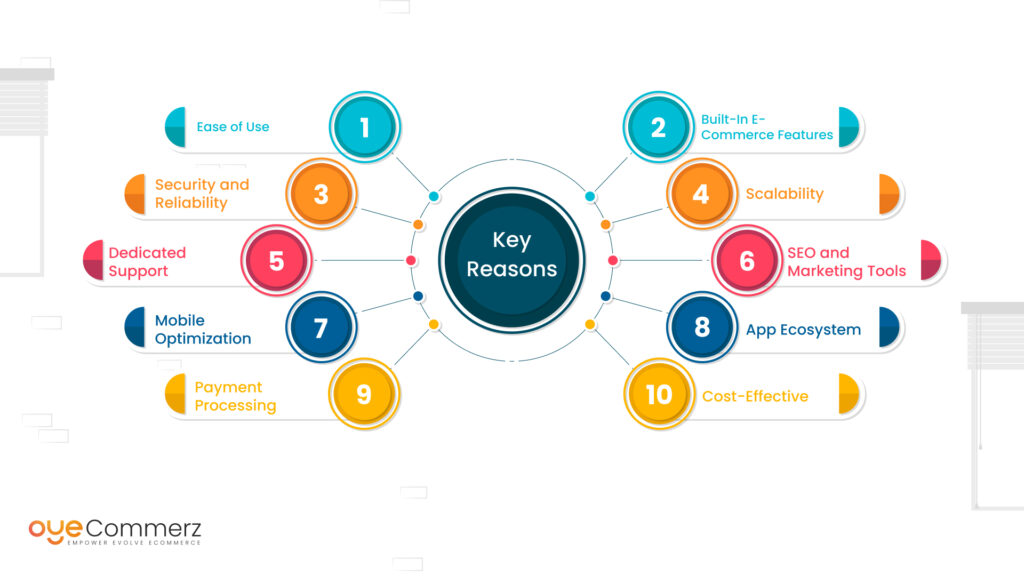In the ever-evolving landscape of online retail, selecting the right platform is crucial for your business's success. If you’re currently using WordPress and considering a migration to an alternative, you’re not the only one. Countless businesses are switching to take advantage of Shopify’s powerful capabilities, ease of use, and expandability. This guide will take you through the process of migrating from WordPress to Shopify seamlessly, ensuring that you unlock your online retail potential.
Why Switch from WP to Shopify?
Before exploring the migration journey, it’s important to know why this transition can be helpful for your online store:
User-Friendly Interface: Shopify features an straightforward system that streamlines store management, enabling for non-technical users.
Flexibility: As your business expands, Shopify can support higher traffic and transactions without affecting efficiency.
All-in-One Solutions: Shopify provides built-in tools for search engine optimization, analytics, payment management, and additional functionalities, eliminating the necessity for several plugins.
Enhanced Security: With Shopify, you utilize strong security measures that secure confidential customer data.
Steps for a Effortless Migration
Migrating your online store from WP to Shopify involves multiple actions.
Here’s the way to facilitate a successful transition:
Prepare Your Migration Approach
Start by outlining your migration strategy. Pinpoint which elements of your present site you wish to migrate, such as:
Product data
Customer information
Order history
Posts
Select the Appropriate Migration Option
Based on your preferences, opt for a migration package that fits your store. Migration experts provides multiple choices:
Starter Package: Perfect for boutique stores with limited products.
Regular Option: Recommended for medium-sized businesses with more complex requirements.
Premium Migration Package: Perfect for big Shopify migration process stores needing extensive customization.
Backup Your Content
Ahead of beginning the migration, guarantee that you have a full copy of your WP site. This action is critical in situations where anything goes awry during the move.
Extract Your Information from WP
Leverage tools or manual methods to extract critical content from your WP site:
Products
Clients
Orders
Blog posts
Import Content into Shopify
After you have your content retrieved, utilize Shopify’s migration apps or third-party apps to upload your information into your updated store. Verify that all information is correctly structured and aligned.
Customize Your Shopify Store
Following uploading information, tailor your Shopify site’s design to match with your style. Think about working with a designer if you want detailed customization.
Establish TransactionOptions and Delivery Settings
Arrange billing solutions and delivery choices in Shopify to create a smooth purchase experience for customers.
Adopt SEO Best Practices
To maintain your search engine rankings during the migration:
Set up 301 URL mappings from Shopify store testing checklist old URLs to new ones.
Revise meta tags.
Adjust images and copy for SEO.
Evaluate Your Migrated Store
Ahead of launching, completely check your new platform. Identify any broken links, transaction errors, or missing data.
Publish Your Site
After everything is in ready, it’s the opportunity to publish! Inform the update to your users and encourage them to experience the updated capabilities of your Shopify store.
Post-Migration Assistance
Even after releasing your new store, continued support is essential. Explore engaging professionals who can guide with:
Troubleshooting
Promotional campaigns
Performance optimization
Conclusion
Migrating from WordPress to Shopify can be a transformative step for your eCommerce. By following this guide and leveraging professional services like those offered by dedicated providers, you can guarantee a seamless transition that enhances your online presence. Adapt to the change and unlock the advantages of Shopify today!
